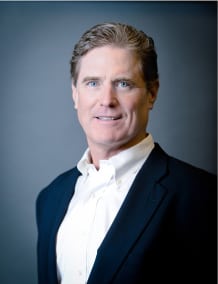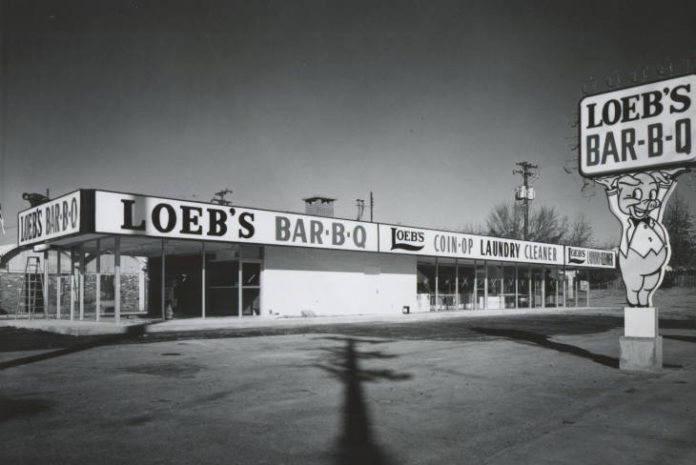DNA and a family name do not always a close connection make. Practically any member of any family of any size will attest to this truism. Sometimes the name and DNA are all that family members have in common.
Such was the situation between former Memphis Mayor Henry Loeb and his younger brother William (Bill) Loeb. Because they were both widely known in the public, the disconnect was publicly known as well.
“Henry Loeb and my father were ideologically opposed, they just didn’t see things the same way,” said Louis Loeb, one of Bill Loeb’s sons and executive vice President of Loeb Properties. “We actually grew up not knowing our uncle or our cousins very well at all.”
Fifty years ago, in 1968, the name Loeb was in the headlines of Memphis newspapers every day. Henry Loeb was sworn in January of 1968 for a second term as Memphis mayor and soon after, the sanitation workers’ strike began. Henry’s refusal to recognize the worker’s union or negotiate a settlement featured him on the front pages of the morning (The Commercial Appeal) and evening papers (Memphis Press Scimitar).
Page two, however, belonged to brother Bill and family. The Loeb’s laundry/dry cleaners, barbecue restaurants and convenience stores were advertised daily in Memphis’ newspapers with photos featuring Bill’s nine children.
“I guess you could say we were overexposed in media at early ages,” quips Bob Loeb, president of Loeb Properties. “My dad figured kids could sell anything, so we participated in a photo shoot every Thursday from when I was born until my teenage years.”
After years of interpersonal conflict Bill Loeb bought Henry’s interest in the business in 1960. Bill’s businesses thrived. His chain of Loeb businesses reached a high of 100 locations in Memphis and the Mid-South, with a great many of them prominently located in black communities. Loeb businesses contributed to the economy in those communities, employed black people and supported organizations and causes.
“After a very contentious episode between them while my father was a waiter at the old Justine’s Restaurant, he and Bill Loeb became good friends,” explained Howard Robertson Jr., president and CEO of Trust Marketing & Communications.

“Months later my dad left Justine’s to become franchisee of two successful Loeb’s Bar-B-Que Restaurants. My father wasn’t the only black Loeb’s franchisee either. That just wasn’t typical in Memphis in the 60’s. There are major, global restaurant chains today in Memphis that still don’t have two African-American franchisees.”
Memphis’ neighborhoods and communities were strictly segregated. Mayor Henry Loeb seemed to deepen the racial divide every day with ultra-conservative statements and an unyielding stance against striking sanitation workers.

– Bob Loeb (pictured)
There were those that didn’t know or didn’t care to distinguish between the Loebs during the civil unrest in ’68 following the King assassination. Many Loeb’s businesses were firebombed and heavily damaged.
“Anyone who knew Bill Loeb knew that he had a strong personality which you may’ve liked or disliked, but he also had strong principles,” said Bob Loeb. “He was fair, unbiased and tried to do right in business, do right by his city and by his family.”
The next two decades brought on a storm of change in Bill’s business industries. A surge in the wash and wear, no-iron apparel industry knocked a big dent in the laundry business. Competition came from the rapidly-growing national fast food chains, serving pre-prepared food through drive-up windows much faster than Loeb’s cooked to order food.
After his term as mayor, Henry Loeb moved to Arkansas where he lived for years on his farm. He suffered a stroke and never seemed to come to terms with his infamous role in American history. Henry and Bill Loeb both died in 1992.
The legacies carried forth by their next generations remain as far apart as they were. Bill’s sons transitioned into the commercial real estate development business with Loeb Properties. Loeb Properties has revitalized Overton Square, the University of Memphis Highland Strip, and Broad Street. Bob Loeb was named 2014 Memphian of the Year by Memphis Magazine for dynamically changing the built environment of the city.
Henry’s granddaughter Lauren and her husband brought national attention to Memphis in 2017 with a racist rant captured on cellphone against a hotel employee in Turks Caicos that went viral.
“We believe people can understand that although they were brothers, they were divided, disconnected and diametrically opposite,” explains Bob Loeb. “The legacies, like the men, couldn’t be more different.”
(Source: Trust Marketing. For more information: 901-521-1300; email: [email protected].)




